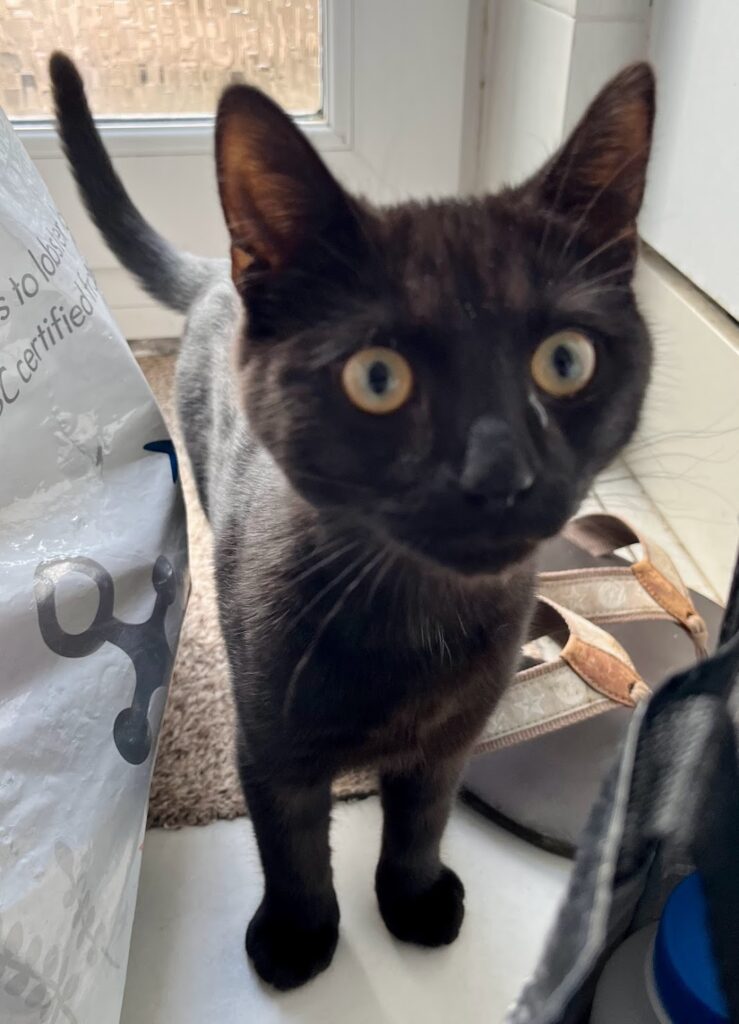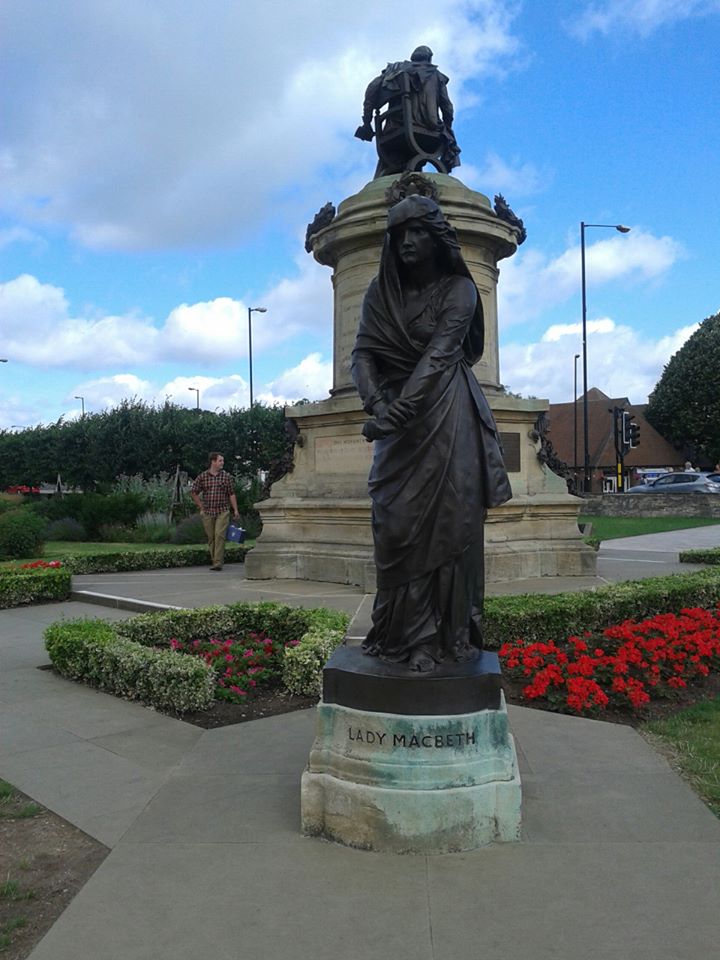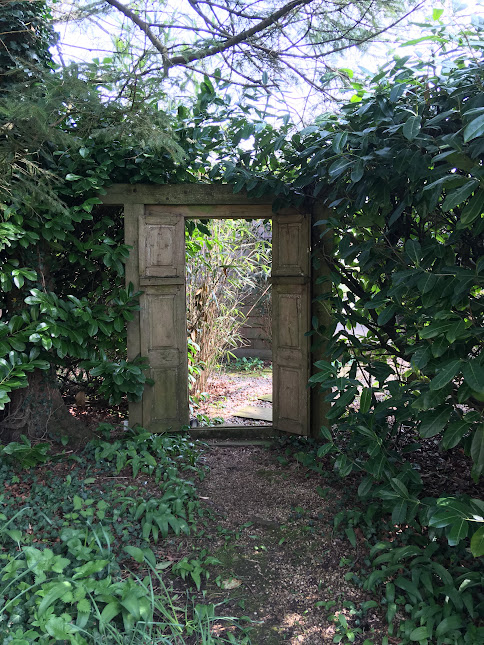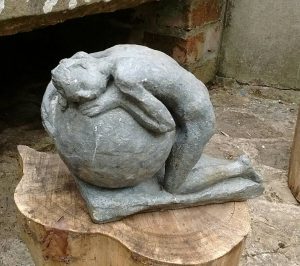This Week’s Bit of String: A blossoming crop of exclamation points
My back garden has transitioned from Phase 1 to Phase 2. Especially in a warm, dry year like this, I work on growing vegetables almost all year-round, something not possible in the winters where I’m from.
Phase 1 involved harvesting the broad beans and onions I planted last October. It involved tulip worship, California poppy and cosmos bliss, and a long wait for raspberry-shaped alliums. A near-intoxicating glut of strawberries, plus the first courgettes.
And it was fairly bountiful. A dozen onions lie curing on a cooling rack on my dining room table. I have two bags of strawberries in the freezer, and I ate loads more as summer conquered the spring most mercilessly.
Despite platoons of ants marching up and down the beanstalks to farm saturated black colonies of aphids, I harvested a few mixing bowls of bean pods over the during Phase 1, enhancing a few stews and salads. I uprooted the stalks a couple weeks ago, leaving some foliage to nourish the soil.
Phase 2 is more courgettes, blueberries, tomatoes, and cauliflower. Deep purple petunias and gladioli; roses and rudbeckia. Phase 3 will be carrots, aubergines, more tomatoes and onions, plus possibly a few pears.
When the breeze blows and the neighbours’ various extension projects fall silent, the garden is blissful, a haven for bees (so long as they can spiral upward, away from Obie cat). But it’s also a wonder, a rebellion, a never-guaranteed reward for labour.
Sometimes I reflect that every unfolding petal is miraculous.
Shout-Outs
I adore the velvet of the petunia flowers, and I was thrilled to find the broad bean pods were fleecy inside, too. I never knew that.
I’ve seen two different kinds of bees on one allium. Every time I pass the cream-coloured roses in the front garden to water the hostas and calla lilies, I smell their gentle raspberry scent. A peony bush and two sheafs of wheat at opposite sides have appeared and grown out of nowhere. The wheat is a tight braid of kernels, its blue-green slowly drying.
Until three years ago, when our Bear moved back to the USA, I didn’t have time to grow plants. I’m still a bit shocked this is a thing I’m capable of, although clearly nature is doing much of the work. If given the chance, I will boast about my yields, just as I might about my word count cultivating a new novel. 3000 words per week isn’t amazing, except maybe it is because I’m doing it while the term stretches on and I spend my breaks and half my lessons in classrooms that are at least 30 degrees Celsius, with understandably obstreperous teens.
Thinning the Rows
Of course, that isn’t my only writing project. I’m still doing some editing work on my novel about Eve. Lately, this involves hitting the Ctrl + F to find all instances of very, or thing, or just. Most of these can be eliminated, or replaced with a stronger, more suitable word.
When gardening, I often disregard recommended distances between plants. For a British garden, we’re lucky with its size, but ours isn’t massive and I’m trying to squeeze a diverse group of crops in. So I will plant things closer together than recommended and I don’t always thin the seedlings out. What will be, will be, It usually works out.
Not so with writing, of course. There’s a lot of pruning involved, almost in perpetuity. And I follow the rules more faithfully here, trimming off excess modifiers and adverbs and honing language beyond “started to” or “tried to” or “like” or “things.”



But there’s one rule I’m questioning, and it’s exclamation points. Current thinking allows them little right to exist. I know what you’re thinking: “What?!” Just kidding. I hated when, for the last couple years or so, Elon changed the post-your-Tweet box to “What’s happening?!” feeding the sensation that the world is in chaos and each of us is urgently reporting on this minute by minute.
I understand that the words themselves should convey the urgency. But it looks limp and anti-climactic to write without an exclamation point sometimes: “‘No,’ she cried.”
Take the flashback scene when Eve remembers Cain killing Abel. In the Biblical account, it is the second of many instances in which God is disappointed by His underperforming Creation. To Eve, it is unending separation from both her sons because of a deity’s petty grievances. Perhaps she is entitled to a few exclamation points.
There are times when playing it cool doesn’t make sense. I am happy to sprinkle excited exclamation marks amidst the contentment I feel in my garden. Goodness knows there are many more alarming justifications for exclamations these days. I wonder if robbing a character or incident of an exclamation mark minimises their experience. But as with any other device, the mark’s potency does depend on it not being overused.
What do you think about this form of punctuation? Do you strive to use it less… Or should we be letting it back into our lives and our work?













